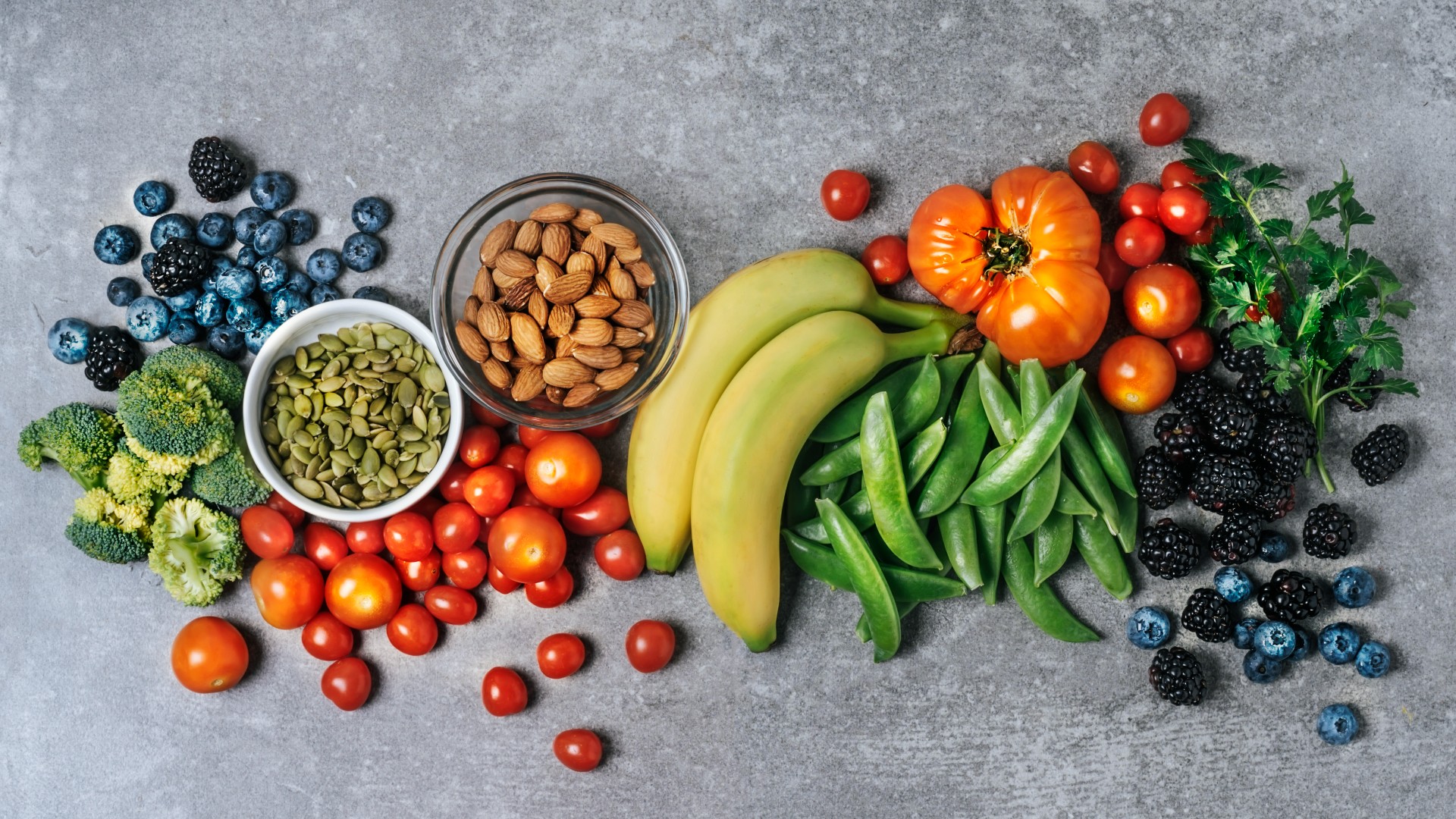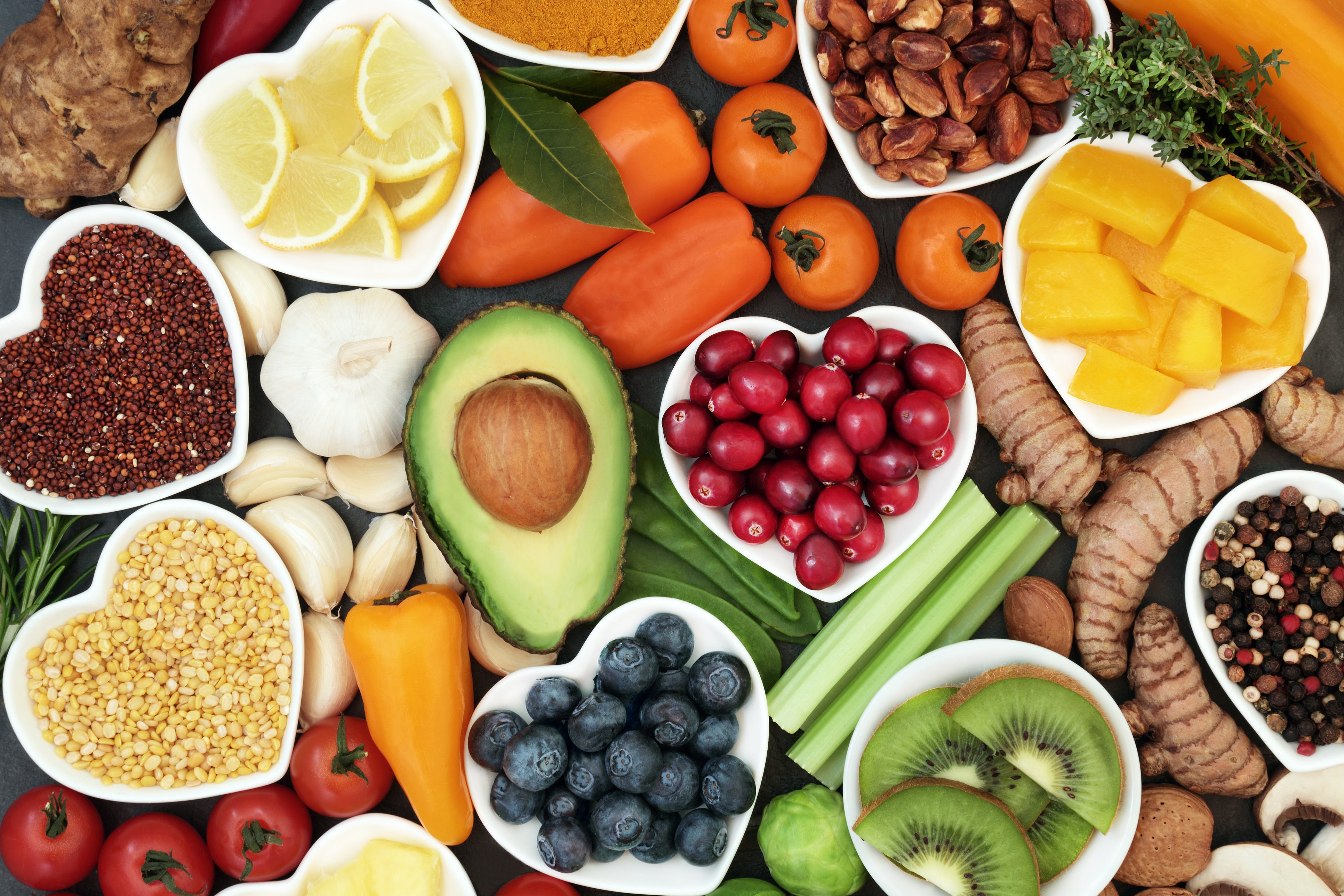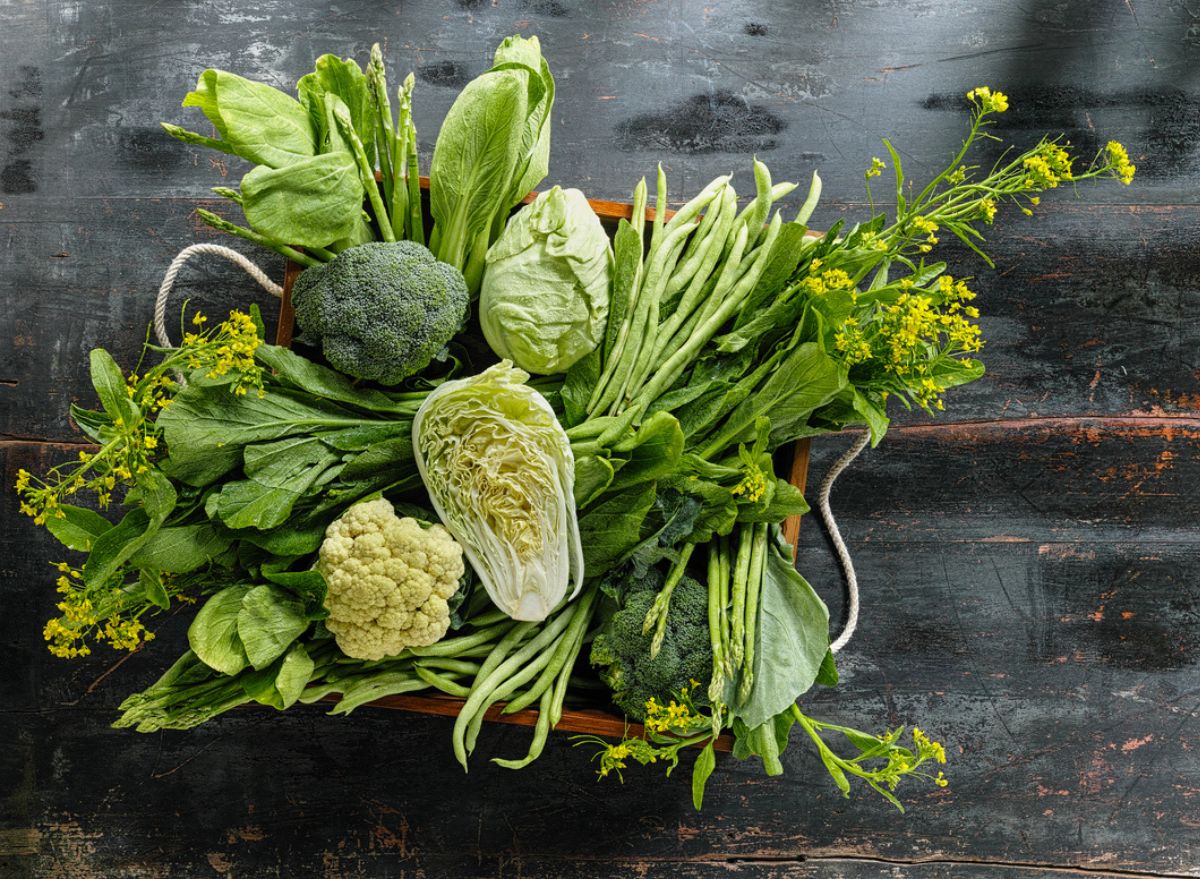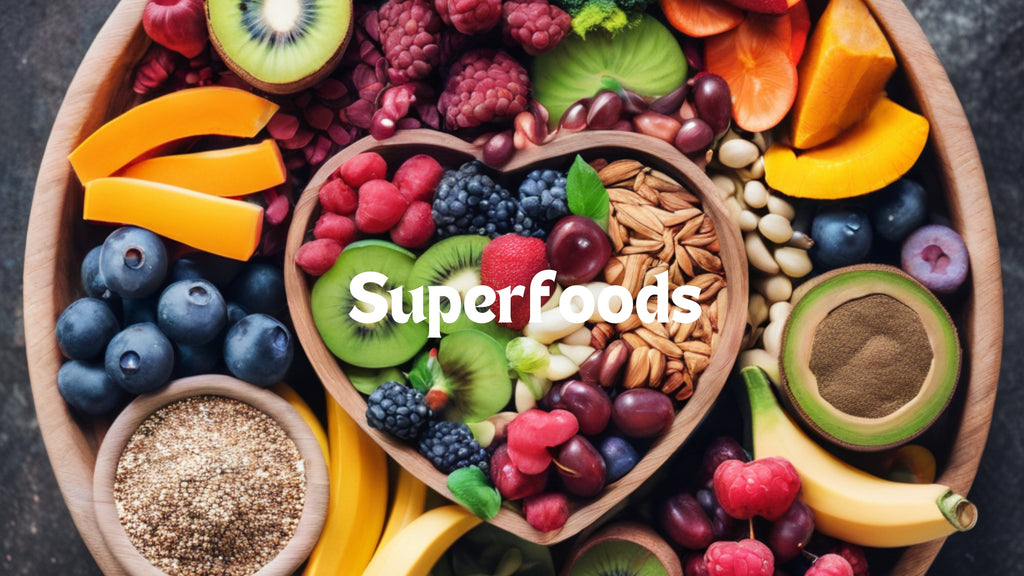What are Antioxidants and Why are They Important?

Antioxidants: Definition and Role in the Body
Antioxidants are essential compounds that play a crucial role in maintaining optimal health and well-being. They protect our cells from damage caused by free radicals, unstable molecules that can harm cells and lead to various diseases. By neutralizing free radicals, antioxidants help in preventing oxidative stress and inflammation in the body.
The Definition of Antioxidants:
- Antioxidants are molecules that inhibit the process of oxidation, which can produce free radicals.
- Common antioxidants include vitamins C and E, selenium, and various phytochemicals found in fruits, vegetables, and other plant-based foods.
The Role of Antioxidants in the Body:
- Protecting Cells: Antioxidants protect cells from damage and support overall cell function.
- Boosting Immunity: They help strengthen the immune system, making the body more resistant to infections.
- Anti-Aging Properties: Antioxidants can help slow down the aging process by reducing cellular damage.
Understanding the definition and role of antioxidants is key to making informed choices about your diet and lifestyle for optimal health.
Benefits of Antioxidants for Overall Health
After understanding the definition and role of antioxidants, it’s important to explore the numerous benefits they offer for your overall health and well-being. Incorporating antioxidant-rich foods into your diet can have a profound impact on various aspects of your health.
Enhanced Cellular Protection:
- Neutralizing Free Radicals: Antioxidants help combat oxidative stress and prevent cell damage.
- Reduced Risk of Chronic Diseases: By reducing inflammation and oxidative damage, antioxidants may lower the risk of chronic conditions like heart disease, cancer, and Alzheimer’s.
Improved Skin Health:
- Anti-Aging Effects: Antioxidants can help maintain youthful skin by fighting free radical damage and promoting collagen production.
- UV Protection: Some antioxidants offer natural sun protection and help protect the skin from UV-induced damage.
Incorporating antioxidant-rich foods into your daily meals can offer a wide array of health benefits, from protecting your cells to promoting radiant skin.

Berries: Nature’s Antioxidant Powerhouses
Types of Berries Rich in Antioxidants
Berries are nature’s antioxidant powerhouses, packed with a wide range of powerful antioxidants that offer numerous health benefits. Including a variety of berries in your diet can help boost your antioxidant intake and support overall well-being.
Blueberries:
- High in Anthocyanins: Blueberries are famous for their rich anthocyanin content, known for their strong antioxidant properties.
- Brain Health: Studies suggest that blueberries may improve brain function and protect against age-related cognitive decline.
Strawberries:
- Vitamin C Source: Strawberries are packed with vitamin C, a potent antioxidant that supports immune function and skin health.
- Heart Health: The antioxidants in strawberries may contribute to heart health by reducing inflammation and oxidative stress.
Raspberries:
- Ellagic Acid Content: Raspberries contain ellagic acid, a compound with antioxidant and anti-inflammatory effects.
- Digestive Health: The fiber and antioxidants in raspberries can promote healthy digestion and gut function.
Incorporating a variety of antioxidant-rich berries into your diet can provide a delicious way to support your health and enjoy the benefits of these nutrient-packed fruits.
Health Benefits of Including Berries in Your Diet
Adding a variety of berries to your diet can offer a wealth of health benefits beyond just their antioxidant content. These flavorful fruits provide a range of nutrients that can support your overall well-being and contribute to a balanced and nutritious diet.
Supports Heart Health:
- Lowering Blood Pressure: Berries are rich in compounds that have been shown to help lower blood pressure and reduce the risk of heart disease.
- Improving Cholesterol Levels: The fiber and antioxidants in berries may contribute to improving cholesterol levels and overall heart health.
Aids in Weight Management:
- Low in Calories: Berries are low in calories but high in fiber, making them a satisfying and nutritious snack for weight management.
- Regulating Blood Sugar: The fiber content in berries can slow down digestion and help stabilize blood sugar levels.
Enhances Skin Health:
- Antioxidant Protection: The antioxidants in berries can help protect the skin from damage caused by free radicals, promoting a healthy and youthful complexion.
- Collagen Production: Certain nutrients in berries can support collagen production, contributing to skin elasticity and firmness.
Including a variety of berries in your daily diet can provide a flavorful and nutrient-dense way to improve your overall health and well-being.

Dark Leafy Greens: Nutrient-Dense Antioxidant Sources
Varieties of Dark Leafy Greens High in Antioxidants
Dark leafy greens are not only rich in essential nutrients but also packed with antioxidants that promote overall health and vitality. Including a variety of these nutrient-dense greens in your diet can significantly boost your antioxidant intake and support various aspects of well-being.
Spinach:
- Rich in Vitamin C and E: Spinach contains high levels of antioxidant vitamins C and E, which help combat oxidative stress and support immune function.
- Lutein and Zeaxanthin: These antioxidants found in spinach are beneficial for eye health and may reduce the risk of age-related macular degeneration.
Kale:
- Beta-Carotene: Kale is a potent source of beta-carotene, an antioxidant that promotes skin health and supports immune function.
- Quercetin: This antioxidant in kale has anti-inflammatory properties and may help protect against chronic diseases.
Swiss Chard:
- Vitamin K: Swiss chard is rich in vitamin K, an antioxidant that plays a key role in bone health and blood clotting.
- Magnesium: This mineral in Swiss chard works as a cofactor for antioxidant enzymes, enhancing their effectiveness in combating oxidative stress.
Incorporating a variety of dark leafy greens into your meals can provide a nourishing and antioxidant-rich addition to your diet, supporting your health and well-being in numerous ways.

Impact of Dark Leafy Greens on Health and Well-being
Dark leafy greens have a profound impact on overall health and well-being due to their high antioxidant content and nutrient density. Including these powerhouse greens in your diet can bring about a range of positive effects that support your body inside and out.
Boosting Immune Function:
- Antioxidant Defense: The antioxidants in dark leafy greens help strengthen the immune system by combating free radicals and reducing oxidative stress.
- Vitamin Support: These greens are rich in vitamins A, C, and E, which play crucial roles in immune function and overall health.
Supporting Skin and Hair Health:
- Collagen Production: Dark leafy greens contain nutrients that support collagen production, contributing to skin elasticity and hair strength.
- Antioxidant Protection: The antioxidants in these greens can shield the skin and hair from damage caused by environmental factors and free radicals.
Aiding Digestive Health:
- Fiber Content: Dark leafy greens are high in fiber, which promotes healthy digestion, regulates bowel movements, and supports gut health.
- Detoxification Support: The nutrients in these greens aid the body’s natural detoxification processes, helping to eliminate toxins and promote overall well-being.
By incorporating a variety of dark leafy greens into your meals, you can harness their nutrient-packed goodness to enhance your health and well-being from the inside out.

Nuts and Seeds: Antioxidant-Rich Snack Options
Popular Nuts and Seeds Packed with Antioxidants
Nuts and seeds are not only delicious and versatile but also serve as excellent sources of antioxidants. Including a variety of nuts and seeds in your diet can provide a flavorful and nutrient-rich way to boost your antioxidant intake and support your overall health.
Almonds:
- Vitamin E Rich: Almonds are packed with vitamin E, a powerful antioxidant that helps protect cells from damage.
- Healthy Fats: The monounsaturated fats in almonds support heart health and aid in the absorption of antioxidants.
Walnuts:
- Omega-3 Fatty Acids: Walnuts are a great source of plant-based omega-3s, which have anti-inflammatory and antioxidant properties.
- Polyphenols: These antioxidants in walnuts may help reduce oxidative stress and inflammation in the body.
Chia Seeds:
- Omega-3s: Chia seeds are rich in omega-3 fatty acids, which contribute to their antioxidant and anti-inflammatory effects.
- Fiber Content: The fiber in chia seeds supports digestive health and helps regulate blood sugar levels.
Including a variety of antioxidant-rich nuts and seeds in your meals can provide a tasty and convenient way to enhance your antioxidant intake and promote overall well-being.

Incorporating Nuts and Seeds into a Balanced Diet
Adding nuts and seeds to your daily meals is a simple and effective way to elevate the nutritional value of your diet while enjoying a variety of health benefits. These antioxidant-rich foods can be easily incorporated into your meals and snacks to support your overall well-being.
Snack Options:
- Trail Mix: Create a custom trail mix with a mix of nuts, seeds, and dried fruits for a satisfying and nutrient-packed snack.
- Nut Butter: Spread nut butter on whole grain toast or use it as a dip for apple slices for a delicious and protein-rich snack.
Meal Enhancements:
- Salad Toppings: Sprinkle chopped nuts or seeds over salads for added crunch, flavor, and a boost of antioxidants.
- Smoothie Boost: Blend nuts or seeds into your smoothies for a creamy texture and an extra dose of antioxidants and healthy fats.
By incorporating a variety of nuts and seeds into your balanced diet, you can enjoy their antioxidant benefits while adding flavor, texture, and nutritional value to your meals and snacks.

